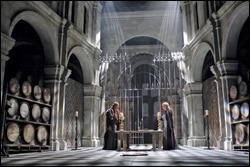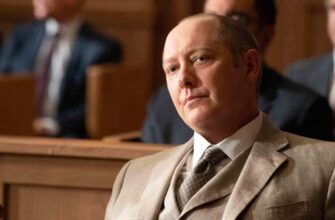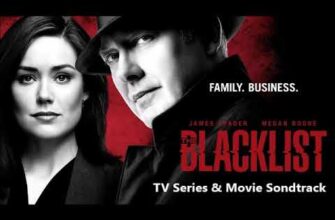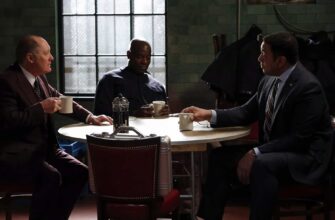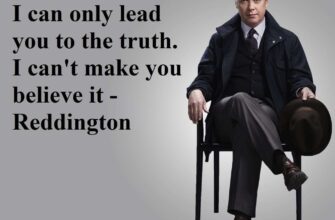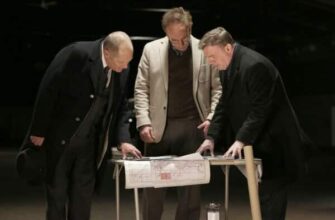Warning: Spoiler Alert
Peter Gould, Vince Gilligan and the Better Call Saul creative team have managed a tremendous feat this season: creating an origin story – with a character that we know will turn into a greasy, amoral “CRIMINAL lawyer” – in which the character is a completely sympathetic underdog. Nine episodes into this incredible prequel, Jimmy McGill has remained a totally separate character from the later Saul Goodman. Sure, there are revealing glimpses about how Jimmy could morph to the dark side, but most of the time has been spent portraying the distinct man that used to exist.
The zigs and zags of Season 1 left fans wondering when and if we’d actually see Jimmy “break bad” this season and move towards full-on Saul-dom. And then the moment of truth arrived at the end of Episode 1.9 last week when Jimmy was shocked and devastated to learn that the man pulling strings to hold him down was actually his own, psychologically-disabled brother. THAT is the kind of trauma that can cause a man always struggling to “do the right thing” to decide that he’s being a sucker. And Episode 1.10, Marco, the season finale, actually adds salt to the wound in terms of two people actually being nice to him: Howard, perceived all along as a real bastard, but a guy who really didn’t want to be cruel to Jimmy and Kim, the ambitious friend who many viewers thought might be the one to undermine and embitter Jimmy in the end.
But the episode begins with another flashback to the Cicero days: when Jimmy got sprung from jail by big brother Chuck, as seen in a previous cold open. The man for whom the episode is named, Marco, chats with Jimmy in a bar as our hero is about to move to Albuquerque to begin the ill-fated HHM mailroom stint. Marco pleads with Jimmy to stay, but, obviously at this point, Jimmy still idolizes and feels indebted to Chuck, so he’s leaving.
Back in the present-day American Southwest, Jimmy talks to Kim in the HHM lobby. He’s here to present the Sandpiper case to Howard after all and take the terms offered to him. When he asks her why she didn’t tell him the truth, she indicates that she didn’t want him to hate his brother. In the meeting with Howard, the old adversaries are actually getting along now that the truth has been revealed. Howard asks if Kim revealed what he told her and Jimmy denies it, having figured it out himself. The deal is agreed to quickly on the terms HHM previously offered and Jimmy adds a simple addendum: the list of supplies needed to be furnished to Chuck regularly. Howard is flabbergasted that Jimmy has run himself ragged with these errands on an ongoing basis and as such, he is totally believable when he tells Jimmy that he always liked him and wanted to do better by him. An appreciative Jimmy believes it, even as he remains galled that the man that he thought was his archenemy is actually a nicer guy than his own flesh and blood.
With Chuck’s despicable words still ringing in his ears, Jimmy MCs another bingo game at the nursing home that contains his clients and prospective clients. In a farcical but compelling scene, a series of balls keep coming out of the hopper containing the letter “B.” After giving voice to his demons by uttering “B as in Brother … B as in Betrayal … B as in Benedict Arnold,” the long chain of consecutive “Bs,” which only serves to prolong the game unbearably (to him, not to the quietly contented old folks) creates a tableau that ironically does not pass his lips: “B as in Breakdown.” To a suddenly startled audience, he begins a funny monologue that turns more troubling as it picks up steam. It’s the story of why he got arrested in Cicero ten years earlier.
That aforementioned cold open had referenced a “Chicago sunroof” without providing any context. Well, it was furnished here in all its smelly brown glory. Jimmy had been wronged by a cad named Chet, who slept with his wife, so when Jimmy saw the chance to provide that “Chicago sunroof” – by, you guessed it, pooping through the panel on top of the car – the presence of the children in the back seat complicated the matter terribly. As it happens, due to tinted windows that Jimmy claims were illegal in Illinois, he had no idea that he was terrorizing these tykes – and, by the standards of the law, exposing himself to them and drawing much more severe charges. That moment, Jimmy concludes, inflicted upon him the stifling, small existence that he’s been immersed in ever since. As he stalks out of the bingo game, he gives every appearance of leaving that world behind.
That impression is strengthened by his week-long return to Cicero to visit Marco, who it becomes apparent is actually the best friend that Jimmy has ever had. Like Jimmy, his portly friend has become trapped in a small life himself, doing standpipe work for his brother-in-law that he finds profoundly unsatisfying. The two fall back into their small-time grifter act quickly, hustling bar strangers with schemes ranging from an alleged rare JFK half-dollar coin to an apparently pre-Internet version of the Nigerian prince scam. Along the way, Jimmy also impersonates Kevin Costner to get in a woman’s drawers – a feat which he would later boast about on Breaking Bad! Or was it earlier, since the Breaking Bad episode aired a few years ago despite being several years in the future from then? Wow, Gould, Gilligan and the crew can really jerk with one’s perception of the space-time continuum!
When Jimmy retrieves several voicemails and wakes up to his responsibilities to his clients back home, he prepares to say goodbye to Marco again. Strangely, it’s only in this moment when Jimmy bothers to mention to Marco that he’s become a lawyer. Marco assumes that he’s living the “streets paved with gold” existence and cannot understand why Jimmy is not when he sets the record straight. Regardless, Marco doesn’t want to let him leave before pulling their favorite scam, the one involving the Rolex being taken off of the (apparently) dead guy. Jimmy is resistant, but he gives in, only to face tragedy: Marco, who had been prone to a bad-sounding cough during Jimmy’s visit, delivers one more before collapsing for real. When Jimmy realizes what’s going on, he halts the scheme and calls for an ambulance, but it’s too late. Before passing away from a heart attack, Marco tells Jimmy that he’s just had the best week of his life. The moment is even more poignant for the disappointment that Jimmy had caused Marco by returning to town for his mother’s funeral and, due to Chuck’s disapproval, not looking up Marco at the time.
Jimmy stays in town long enough to pay his respects to his close friend and is given a ring by Marco’s mother. He also receives a call from Kim, who informs him that the Sandpiper case is actually too much for a firm the size of HHM to handle. They have an offer to become a junior partner in the case from a larger firm in Santa Fe called Davis and Main – and thanks to the seniors’ abiding love for Jimmy and some nudging from Howard and Kim, Davis and Main are interested in hiring Jimmy and dangling a potential partnership in front of him. Jimmy is grateful for Kim’s help, but is strangely subdued in his acceptance of the meeting that has been offered to him. The viewer is left with the question of whether Jimmy was just contemplative after Marco’s funeral or whether the offer itself is fully satisfactory to him.
Upon his return to Albuquerque, before Jimmy drives to the meeting, he parks near his brother’s house and watches approvingly as his friend Ernie from HHM makes his delivery to Chuck. After Ernie leaves, Chuck notices out the front window that Jimmy is sitting there, but the moment passes as Jimmy then drives away.
The meeting with Davis and Main is scheduled at the courthouse, so Jimmy passes by Mike at the toll booth on his way to park the car in the garage. As he’s walking toward the biggest (legal) opportunity that he’s ever had within his grasp, he pauses and glances down at Marco’s ring. And then he starts walking back to his car! What an unbelievable touch, characteristic of this great show, for Jimmy’s decision to essentially abandon any pretense of morality to be rooted in some small way in loyalty toward his friend’s ethos. Surely ethicists will be debating the meaning of that moment for the next 100 years.
Mike is amused to see him departing the garage so quickly and he breezily offers to drop the charge for such a small time. Jimmy’s mind, however, is focused on a much more serious thought: specifically, his major ethical conundrum of Season 1. He asks Mike about the stolen Kettleman fortune that was being held by them. He wonders what made them return it. Mike replies simply that he did the job that he was paid to do, nothing more, nothing less. For Jimmy, who’s spent ten years trying to live down his “Slippin’ Jimmy” past and be the kind of guy who always does the right thing only to have his brother doubt his character in the end, the answer is clear. “I know what stopped me. And it’s never stopping me again.” And in that moment, Jimmy joins Marco on the other side and Saul is born.
For as much as Breaking Bad was first and foremost a show about the ongoing madness and chaos fomented by Walter White’s bad choices, it was also a remarkable study of the characters in his personal and criminal lives. In extrapolating the backstory of Walt’s lawyer Saul Goodman, it was initially unclear which element would predominate the spinoff, the wildness or the rich character exploration. As the finale demonstrated from start to finish, the emphasis was always going to be on the latter. You could have fit all of the big adrenaline moments of this season into about 2-3 episodes of Breaking Bad and the finale was completely devoid of them, save for Marco’s collapse. But Better Call Saul managed all throughout the season and in the finale to extract the pieces of the story being told around Walt during Breaking Bad and add a microscopic focus to them. Certainly, Breaking Bad never had a season finale that climaxed with something as banal on paper as a man making a philosophical statement at a toll booth. At the same time, it wouldn’t have fit with the story if it had. Conversely, the end of Season 1 of Better Call Saul fit like a glove with the story being told all along and the distinct flavor that this prequel delivered in its first campaign was quite satisfying indeed.

